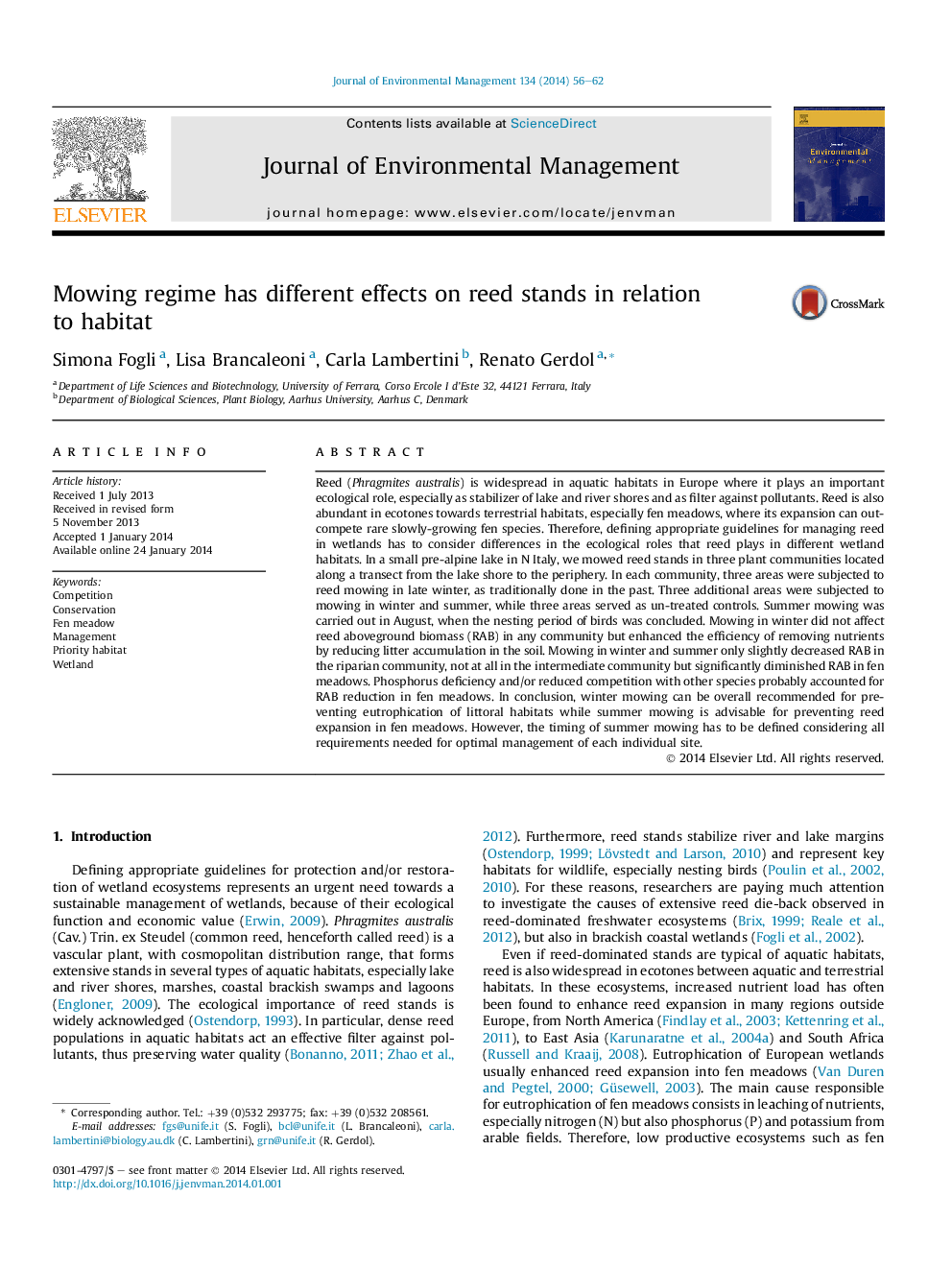| Article ID | Journal | Published Year | Pages | File Type |
|---|---|---|---|---|
| 1055983 | Journal of Environmental Management | 2014 | 7 Pages |
•Reed may play varying ecological roles in wetlands, depending on habitat.•We mowed reed stands in different seasons: i) winter; ii) winter + summer.•Mowing in winter did not affect reed biomass but enhanced nutrient removal.•Mowing in winter + summer diminished reed biomass and increased biodiversity in fen meadows.•Mowing revealed as a good practice for managing reed in different habitats.
Reed (Phragmites australis) is widespread in aquatic habitats in Europe where it plays an important ecological role, especially as stabilizer of lake and river shores and as filter against pollutants. Reed is also abundant in ecotones towards terrestrial habitats, especially fen meadows, where its expansion can out-compete rare slowly-growing fen species. Therefore, defining appropriate guidelines for managing reed in wetlands has to consider differences in the ecological roles that reed plays in different wetland habitats. In a small pre-alpine lake in N Italy, we mowed reed stands in three plant communities located along a transect from the lake shore to the periphery. In each community, three areas were subjected to reed mowing in late winter, as traditionally done in the past. Three additional areas were subjected to mowing in winter and summer, while three areas served as un-treated controls. Summer mowing was carried out in August, when the nesting period of birds was concluded. Mowing in winter did not affect reed aboveground biomass (RAB) in any community but enhanced the efficiency of removing nutrients by reducing litter accumulation in the soil. Mowing in winter and summer only slightly decreased RAB in the riparian community, not at all in the intermediate community but significantly diminished RAB in fen meadows. Phosphorus deficiency and/or reduced competition with other species probably accounted for RAB reduction in fen meadows. In conclusion, winter mowing can be overall recommended for preventing eutrophication of littoral habitats while summer mowing is advisable for preventing reed expansion in fen meadows. However, the timing of summer mowing has to be defined considering all requirements needed for optimal management of each individual site.
